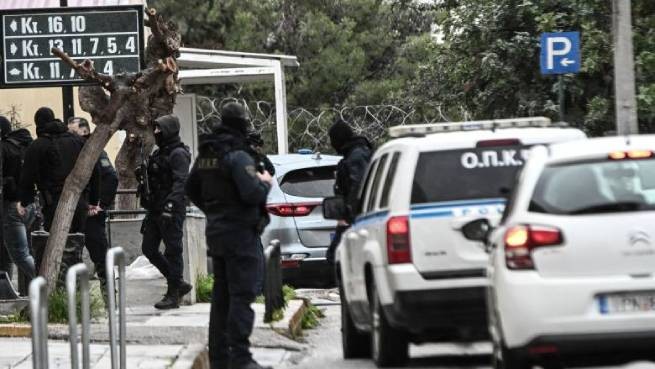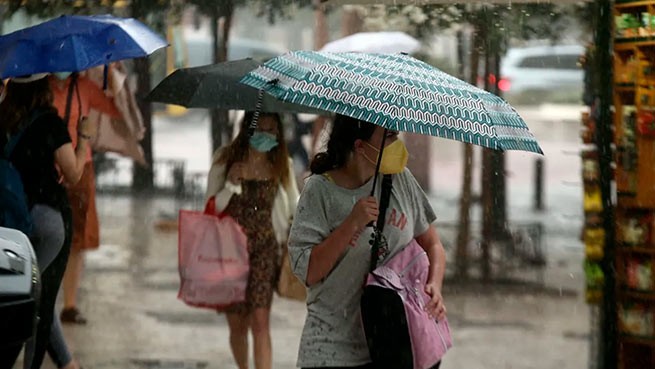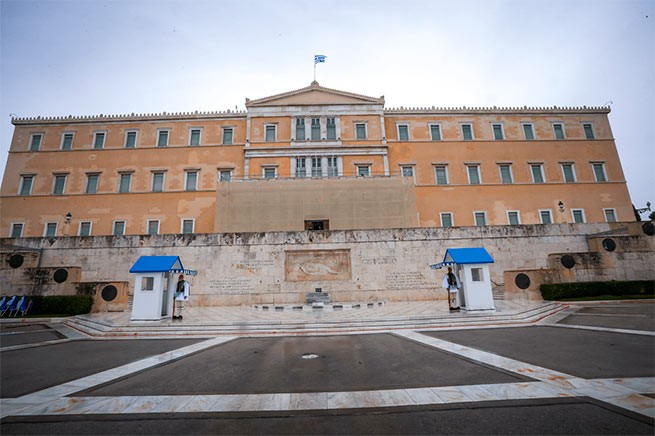A package of 14 measures and measures to increase disposable income is included in the draft Budget 2024 presented to Parliament today.
In particular, the draft budget for 2024 presented to parliament forecasts economic growth at 3%, harmonized inflation at 4%, investment growth at 12.1%, unemployment at 10.6% and a primary surplus at 2.1. % of GDP.
At the same time, as reported Athens News Agency, the draft budget includes income support measures such as a pay rise for civil servants, the end of a three-year wage freeze, an increase in the tax-free benefit for families with children, an increase in the minimum guaranteed income and the resumption of pension increases. In addition, the health sector is being strengthened by increasing subsidies to hospitals by approximately 15%.
In details. The budget provides for the following 14 measures and activities:
1. To increase income in the public sector, in order to better support low-paid civil servants, families with children and people holding responsible positions in the public sector, a reform of the public sector payroll is being carried out (total fiscal costs – 50 million euros for 2023 and 906 million euros for 2024). The main measures concern a horizontal increase in the basic salary by 70 euros, an increase in the family allowance from 20 to 50 euros per month, an increase by 30% in the allowance for a responsible position, an increase in the allowance for border and special working conditions for military personnel and employees of the National Security Service (ΕΥΠ). At the same time, the salary scale for teaching staff (ΔΕΠ) is increased, as is the overnight allowance for civilian and uniformed personnel.
2. To adjust the pensions of special categories, which are under the jurisdiction of the Ministry of National Economy and Finance GEC, increases were introduced, the cost of which amounted to 7 million euros per year. Due to the retroactive effect of the resolution, depending on the category of pensioners, fiscal costs are estimated at 5 million euros for 2023 and 56 million euros in 2024.
3. For financial support approx. 200,000 young people aged 18 and 19 a permanent benefit of 150 euros is introduced for purchases from enterprises operating in the fields of culture, tourism and transport (total budget expenditures – 30 million euros for each of 2023 and 2024).
4. To provide financial support approx. 750,000 pensioners with pensions up to 1600 eurosfor whom the personal difference is more than 10 euros, a lump sum payment of 100 to 200 euros is provided in December 2023 (budget costs amount to 107 million euros),
5. Complete release is confirmed approx. 200,000 former beneficiaries of ΕΚΑΣ from their contribution to pharmaceutical costs (budget costs – 38 million euros per year),
6. For income support for approximately 225,000 vulnerable households the minimum guaranteed income increases by 8% from December 2023 (budget expenditure – €4 million in 2023 and €43 million in 2024),
7. To solve the problem of insufficient fertility and family support maternity benefit increases for freelance workers and farmers to nine months from 2024, following the already institutionalized increase to nine months for private sector workers (budget expenditure €40 million for 2024),
8. Retroactively increases from July 1, 2023. flight allowance for pilots and crews of firefighting aircraft, which will cost the budget €700 thousand per year.
In addition In addition to the above measures, the following interventions are carried out in the labor market and pension system:
9. From January 2024 The “freeze” of three-year employment contracts is cancelled.
10. The 30% reduction in pensions for working pensioners is canceled and replaced by a 10% deduction from additional remuneration received from their work.
11. From January 1, 2024 pensions are again increasing by the average amount of GDP growth and inflationand in 2023, which will cost 410 million euros.
In addition, tax interventions concern:
12. Increase in tax-free benefit by 1000 euros for taxpayerswith one or more dependent children (fiscal costs for 2024 amount to 135 million euros),
13. Decrease ENFIA by 10% for houses, insured against natural disasters,
14. Reform of the capital market structure with significant investment and tax incentives:
- reduction of capital concentration tax from 0.5% to 0.2% (annual fiscal cost of EUR 22 million),
- a 50% reduction in the tax on transactions on the stock exchange (annual budget expenditures amount to 21 million euros);
- abolition of tax on interest on government bonds (annual budget expenditures amount to 7 million euros).
- In order to regulate the short-term rental market and eliminate negative side effects on the real estate market and rents, a 13% VAT and visitor tax is introduced on short-term rental properties (such as Airbnb) for legal entities and individuals with three or more rental apartments.
An accommodation tax is also levied on individuals who rent out property for short-term rentals, and individuals with three or more rental apartments are required to start a business. Finally, the definition of short-term rentals is being tightened and controls over the declaration of income are being strengthened.
Budget 2024: measures to support people affected by fires and floods
It also envisages the implementation of measures to overcome the economic consequences of natural disasters caused by the climate crisis.
The main activities are the following:
- Immediately cover compensation needs (first aid and agricultural compensation), as well as infrastructure repairs and improvements. Financing of the corresponding costs is ensured by the adoption of an additional budget totaling 600 million euros (450 million euros in the national part of the MFF and 150 million euros in the regular budget, article 36 of Law 5053/2023), while resources will be allocated to the restoration of infrastructure NSRF 2014-2020, CIP, which is currently being revised again, and NSRF 2021-2027.
- Starting in 2024, the national MFF provides €600 million to cover on an ongoing basis the costs of public assistance in the fight against natural disasters, which increases the funds available for this purpose by €300 million to cover both the remaining compensation for the current disaster, as well as possible future ones in the coming years. To this end, in addition to the tax on tourist accommodation and short-term rentals, a climate change impact levy is being introduced.
- From 2024, private insurance will become mandatory for companies with an annual turnover of more than 2 million euros. It should cover floods, earthquakes and fires, and cover buildings, machinery, equipment and supplies. Let us remind you that a 10% reduction in ENVAT is applied to residential premises of private individuals insured against natural disasters for the whole year, which will cost the budget 26 million euros for 2024.







More Stories
Türkiye: a lesson about the “Blue Homeland” is being introduced in the educational program
France disrupts the FDI-HN frigate delivery program
Z. Konstantopoulou: "Investigate the judge – she was the presiding judge in the Faliro, Mandra and Matiu cases"